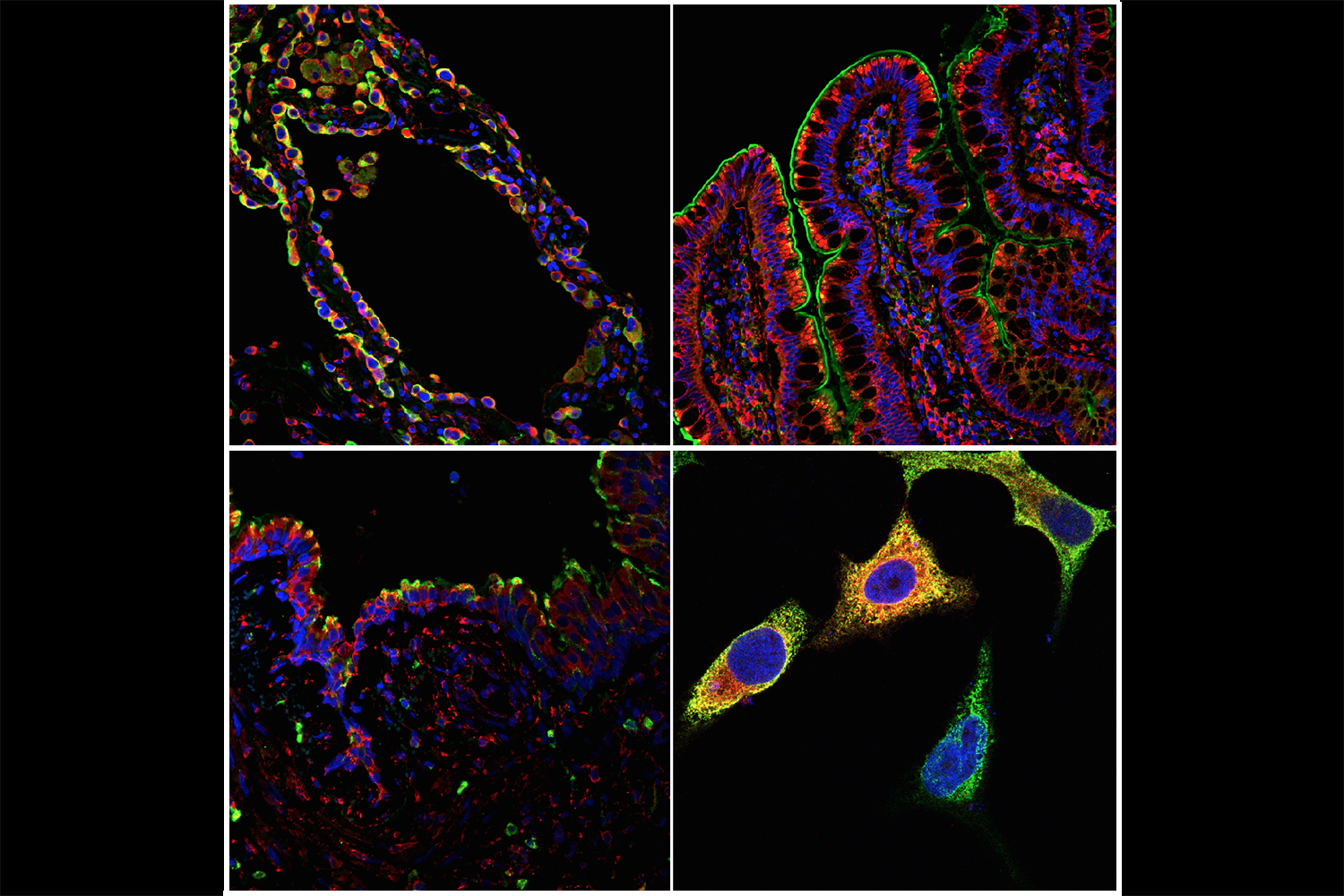Research Area 1: Novel Diagnostics, Antimicrobials, and Vaccines for Emerging Infectious Diseases
- Discovery and genomic characterisation of novel and emerging pathogens and pathogenic forms, including coronaviruses, influenza viruses and other novel viruses and bacteria
- To gain new insights in microbial genomics, and potential diagnostic, therapeutic and vaccine targets through a range of molecular techniques, immunological techniques, animal models, and bioinformatics tools
- Identification and characterisation of viral host adaptation markers and host restriction mechanisms for cross-species transmission of emerging viruses
- Investigation on defects in immune system predisposing to unusual infectious disease presentations, including unbalanced immune responses, autoantibodies against cytokines, genetic susceptibility, and effect of therapeutic agents
- Studies on the regional significance of emerging pathogens
| Supervisor(s) | Research Interest |
|---|---|
|
Coronaviruses, influenza, picornaviruses, novel microbes, emerging infectious diseases |
|
|
Host immune responses to emerging infectious diseases, identification of novel vaccine targets |
|
|
Saliva; point-of-care tests; multiplex testing; vaccine adjuvants; COVID-19; influenza; metagenomics |
|
|
Emerging viruses; coronaviruses; arboviruses; antivirals; animal models |
|
|
Hepatitis E; rat hepatitis E; zoonosis; emerging infectious diseases, transplant infectious diseases |
|
|
Dr X Li |
Host immune response to infection, autoantibodies, antimicrobial therapy, phage therapy, vaccine |
Research Area 2: Novel and Emerging Antibiotic Resistance
- One-Health approach for investigation of antimicrobial resistance (AMR)
- Genomic investigation of resistant bacteria from humans and animals
- Metagenomic investigation of resistome in humans and animals
- Application of machine learning and artificial intelligence in AMR investigation
- Investigation of AMR in Streptococcus pneumoniae, enterococci, Staphylococcus aureus, Gram negative, non-fermentors, and Enterobacerales
- Establishing rapid methods for diagnosis of emerging resistance mechanisms
- Evaluation of new antibiotics
- Studies on the clinical relevance of AMR
- Discovery and development of novel antibiotics
- Tackling AMR with alternative strategies, including anti-virulence, antibiotics sensitizer, bacterial phage, etc.
- Study of antiviral resistance
| Supervisor(s) | Research Interest |
|---|---|
|
Antibiotics; antimicrobial resistance; microbial genomics; metagenomics; enterobacterales; streptococcus; diagnositcs |
|
|
Antibiotics, antibiotic resistance, microbial pathogenesis, anti-virulence, antibiotics adjuvant, bacterial phage, high-throughput screening, chemical genetics, drug discovery |
|
|
Studies of antivirals against influenza virus and coronavirus with high barrier to resistance |
|
|
Dr P Gao |
Antibiotic resistance; novel antibiotics discovery; alternative strategies; pathogenesis; ESKAPE; natural products; drug repurposing |
Research Area 3: Emerging Viral Infections (Influenza, Coronavirus, Enterovirus)
- Development of novel vaccine systems for emerging respiratory viral pathogens including influenza viruses and coronaviruses
- Synthetic defective interfering virus and its potential uses as intradermal vaccine
- Development of broad-spectrum antivirals against emerging viruses including coronaviruses, influenza A viruses, and enteroviruses
- Development of host-targeting antivirals with a focus on metabolic/lipidomic reprogramming
- Development of virus-targeting antivirals targeting viral protease and polymerase
- Studies on viral defective interfering genes against emerging respiratory viruses
- Studies on broad-spectrum antiviral peptides targeting virus and host to inhibit viral entry or release
- Investigation on the mechanism and potential therapeutics for viral-bacterial co-infection
- Development of computational and experimental methods for efficient drug screening and design
- Exploring the novel host factors essential for virus infection and host target for antiviral therapy in organoids
| Supervisor(s) | Research Interest |
|---|---|
|
Host restriction and viral adaptation, virus replication, cross species transmission, vaccine, antiviral targets |
|
|
DNA vaccination strategy, novel vaccine systems |
|
|
Viral genomics; next generation sequencing; viral evolutions; seroprevalence; population immunity |
|
|
Antivirals, antiviral resistance, viral pathogenesis, high-throughput screening, chemical genetics, drug discovery |
|
|
Type-I interferons; rype-III interferons; innate immunity; adaptive immunity, defective influenza vaccine |
|
|
Emerging viruses; coronaviruses; arboviruses; antivirals; animal models |
|
|
Coronavirus; enterovirus; virus-host interactions; high-throughput; CRISPR; RNAi; molecular virology; animal models |
|
|
Broad-spectrum antiviral, lipidomic reprogramming, metabolic reprogramming |
|
|
Entry inhibitors, host protease inhibitors, viral protease inhibitors, apoptosis inhibitors, kinase inhibitors |
|
|
Studies of broad-spectrum defensin-derived peptide antivirals and nanoparticle defective interfering gene antivirals |
|
|
Dr P Gao |
Viral replication; viral-bacterial co-infection; viral pathogenesis, host-pathogen interaction; cytokine storm |
|
Dr C Li |
Coronavirus, influenza virus, human rhinovirus, virus-host interaction, organoids |
|
Infectious animal model; in vivo pathogenicity characterisation; species tropism; in vivo transmission study; innate immune response; neutralizing antibody response |
Research Area 4: Novel Antiviral and Vaccination Strategies against Influenza Viruses
- Cloning of antigen-specific antibodies to define their function in modulating viral pathogenesis
- Application of chemical genetics and conventional genetic approaches (including cloning, site-directed deletions) to dissect microbial pathogenesis and identify microbial targets of important diagnostic and therapeutic value
- Determination of the structures and functions of identified microbial targets using bioinfomatics, molecular modelling, Nuclear Magnetic Resonance spectroscopy, X-ray crystallography and other biophysical methods
- Pathogenesis of emerging viruses including coronaviruses, influenza viruses, flaviviruses, and enteroviruses
- Studying viral pathogenesis in organoids using genetic (CRISPR) and proteomics approaches
- Identification of chemical and genetic mechanisms of interaction between species of bacteria, which are the foundation of the bacterial communities that shape the environment and human health
- Immunopathology of coronavirus infection
- Molecular mechanism of innate immunity
| Supervisor(s) | Research Interest |
|---|---|
|
antibody cloning and engineering, immunotherapy with recombinant antibody |
|
|
Influenza viral vector platform, universal vaccine for influenza, Novel antiviral targets, |
|
|
Antivirals, antiviral resistance, viral pathogenesis, high-throughput screening, chemical genetics, drug discovery |
|
|
Defective influenza vaccine; defective coronavirus vaccine |
|
|
Immunopathology; molecular genetics; infection mechanism; high-throughput; coronavirus; enterovirus; receptor; CRISPR; RNAi |
|
|
Human respiratory organoids, bat intestinal organoids, human intestinal organoids, virus-host interaction, viral pathogenesis |
|
|
Polymerase assembly, cap-snatching, Endonuclease, aptamer, small molecule compounds |
|
|
Virus-host interaction, virus entry mechanisms, viral pathogenesis |
|
|
Immunopathogenesis, immunotherapy, B cell dysfunction, HIV, HBV and COVID19 |
|
|
Dr P Gao |
Microbiota; host-microbiota interaction; shape microbiota; metabolomics; bacterial display; DNA vaccine |
|
Dr C Li |
Viral pathogenesis, host-targeting antivirals, epithelial immunity, bioinformatics |
|
Antiviral molecule screening; de novo designed small molecule; repurposed antiviral inhibitor; antiviral efficacy evaluation in vivo; vaccine evaluation in vivo |
Research Area 5: Molecular Studies on Emerging Pathogens Including Coronaviruses and Influenza Viruses, and Epstein-Barr virus
- Molecular mechanism of innate immunity
- Molecular virology of MERS-CoV and SARS-CoV-2
- Host factors involved in the entry and replication of highly pathogenic coronaviruses
- Organoid-based investigation of virus-host interaction
- Role of long coding RNA (lnc-RNA) of Epstein-Barr virus in oncogenesis of EBV associated tumours
| Supervisor(s) | Research Interest |
|---|---|
|
Cross species transmission of animal influenza and coronavirus; host restriction and viral adaptation; role of EBV lnc-RNA in EBV associated cancers |
|
|
Innate immunity; virus-host interaction |
|
|
Host factors; virus-host interactions; SARS-CoV-2; cell entry mechanism; immunopathology; high-throughput; CRISPR; RNAi; molecular virology |
|
|
Human respiratory organoids, bat intestinal organoids, human intestinal organoids, virus-host interaction, viral pathogenesis |
|
|
Virus-host interaction, virus entry mechanisms, viral pathogenesis |
|
|
Virus-host interplay; in vivo multi-omics analysis; novel host factors involving in viral infection; regulatory host signaling pathways; single cell sequencing |
Research Area 6: HIV/AIDS Mucosal Vaccine, Pathogenesis, and Functional Cure
- Targeting dendritic cells PD1-based vaccine for the functional cure of HIV infection
- Engineering of recombinant neutralising monoclonal antibodies against HIV/AIDS
- Understanding the evolution of the HIV epidemic in Hong Kong and in the region
- Elimination and cure of tumour by active PD1-based vaccination and oncolytic virus
- HIV immune evasion by suppressing host B cell and T cell response
- Vaccine design and innate immune response in shaping potent T cell immunity
- RLR/TLR adjuvant for PD1-based vaccine
| Supervisor(s) | Research Interest |
|---|---|
|
PD1-based vaccination strategy, recombinant neutralising antibody technology, HIV viral evolution and immune evasion |
|
|
Adjuvant and innate immunity |
|
|
Immunopathogenesis, immunotherapy, B cell dysfunction, HIV, HBV and COVID19 |
|
|
Dr ZW Tan |
Tumour vaccine, oncolytic virotherapy, novel immunosuppressive mechanisms in cancer |
Find Out More
Information on selected projects or research areas: Interested candidates are advised to email the relevant supervisors. Please enclose with your email: (i) your CV, (ii) a brief description of your research interest and experience, and (iii) two reference letters (reference letters not required for HKUMed UG students seeking MRes[Med] or URIS projects)
Research studies enquiries specific to the Department/School’s research should be directed to the Departmental Research Postgraduate Advisor: Dr RKH Kok ( khkok@hku.hk)
Information on the research programme, funding support and admission requirements could be found on the RPg Admissions website.
General admission enquiries should be directed to rpgmed@hku.hk.
Meet Our Students

WANG Yixin
Place of Origin: China
Progress: PhD Year 3
Supervisor: Dr H Chu
在新冠病毒的研究中,王怡心作為港大微生物學系研究團隊的一員,真切感受到醫學研究的意義。在她負責的研究項目中發現,新冠病毒在人體肺部的複製能力是非典病毒的3.2倍,但新冠肺炎患者的發炎癥狀及免疫系統反應更為緩慢。王怡心感受到發現的樂趣,她表示以前認為基礎研究離生活很遠,也很少主動與家人分享,如今切身體會到科研的價值,以及自己為社會做出的貢獻。
王怡心表示,70%的實驗都會以失敗告終,每天遇到的問題也不盡相同。但這並不影響她的科研之心,她享受每次發現問題帶來的新鮮感。她認為所有解決不了的難題,源自於思維的局限性,總能有方法繞着走過去,尋找問題的突破口。她不斷查閱文獻,與老師以及身邊的同學積極溝通、分享困惑,在查閱和交談之中發現新的靈感,幫助自己從困境尋找新的方向。
November 2020


Follow HKUMed